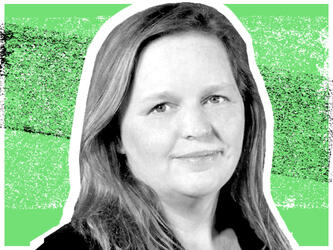Everyone’s talking about young men’s misogynistic attitudes – but who’s actually listening to them?

A recent op-ed in Research Live rightly asked whether insight can help us reach young men in a changing world. It’s a timely question – and one that demands more than speculation and critical analysis. It calls for real data, cultural fluency and a willingness to meet young men where they are.
Our recent multi-stranded research, which won the MRS Virginia Valentine Award for Cultural Insights in 2024, is helping lift the lid on what’s really happening inside the manosphere from young men’s perspectives. Conducted over two years across the UK, US and Australia, and due to be published with Movember on 23rd April, the study offers a window into the attitudes, needs and motivations of today’s young men in a digital world.
What we’re excited about isn’t just the findings – it’s the approach. When it comes to understanding nebulous cultural phenomena like the manosphere, traditional research methods often fall short. Engaging young men through a “masculinity” frame tends to shut down conversations before they begin. Focus groups are social settings, where politeness, pride and restrictive social norms can get in the way of frank and honest feelings. Even the most thoughtful survey design can miss the deeper cultural signals.
To really connect with this audience, we need to engage and listen differently. That means moving beyond the power dynamics of top-down questioning, and instead co-creating insight through methods that build trust, flex between personal connections and anonymous interaction, and reflect the spaces where identity is actively being formed – often in the digital margins.
"Focus groups are social settings, where politeness can get in the way of frank and honest feelings."
Our enquiry leaned into peer-led conversations, guided by social listening and supported by youth workers and cultural experts. We co-designed the project with young men we’ve worked with previously, who understand both our interests and the priorities of the audience. It gave young men space to set the agenda, without fear of judgement, and the results were complex, surprising and deeply human.
It’s true that a worrying proportion of young men are engaging with content that reinforces restrictive norms and unhealthy behaviours. But many are also searching for purpose, connection and certainty in a world that feels chaotic and adrift. The influencers they follow aren’t always provocateurs – they’re often surrogate role models, filling a vacuum that wider society has left open for them.
The bigger question, then, isn’t simply why young men are being drawn into these spaces. It’s what’s missing from everywhere else.
For insight folks, this points to three important shifts at first principle:
1. Get comfortable with the margins
The most influential content and cultural signals are emerging from the least moderated corners of the internet, and making their way mainstream. If we don’t understand those spaces, we can’t understand the audience’s journey.
2. Let the audience lead
Young men are highly attuned to power dynamics, and weary of facing more criticism. Participatory research – where they shape the dialogue – delivers richer, more authentic insight.
3. Bridge the gaps between behaviour and belief
What young men do online doesn’t always reflect what they believe – and the narratives they are exposed to often influence their ideologies at subtle, near-subconscious levels. But those behaviours are clues to how identity and belonging are being negotiated in real time.
If research wants to remain relevant and useful in this context, it must be willing to adapt. That means moving faster, looking deeper, and developing new cultural literacy to engage audiences in ways that are respectful, representative and real.
This is about more than better insight. It’s about understanding what young men are truly looking for. Because beneath the headlines and the hashtags, they’re not just consuming content – they’re trying to make sense of themselves and the world around them.
And if the research industry wants to help shape better answers, it has to start by listening better.
Saul Parker is co-founder and chief executive at The Good Side

We hope you enjoyed this article.
Research Live is published by MRS.
The Market Research Society (MRS) exists to promote and protect the research sector, showcasing how research delivers impact for businesses and government.
Members of MRS enjoy many benefits including tailoured policy guidance, discounts on training and conferences, and access to member-only content.
For example, there's an archive of winning case studies from over a decade of MRS Awards.
Find out more about the benefits of joining MRS here.













0 Comments